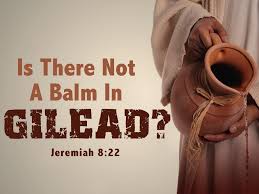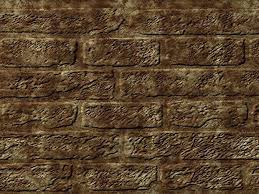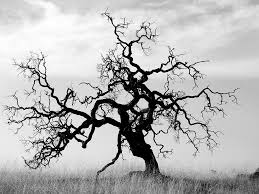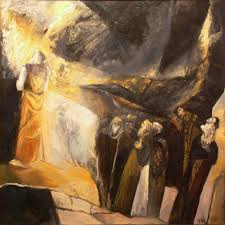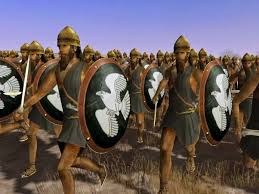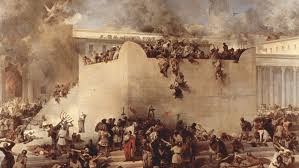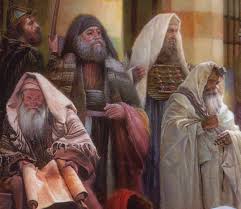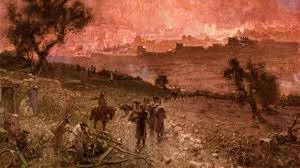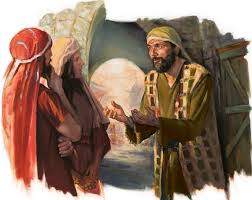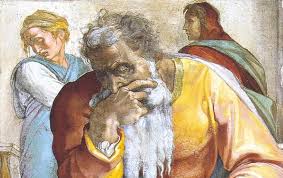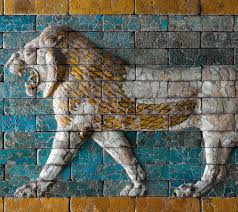Bq – Since My People are Crushed, I Mourn and Horror Grips Me 8:18 to 9:9
Since My People are Crushed, I am Crushed,
I Mourn and Horror Grips Me
8:18 to 9:9
Ssince my people are crushed, I am crushed, I mourn and horror grips me DIG: How does Jeremiah feel about the coming invasion? What are their tongues capable of (9:3, 8)? In what situations does deception prove effective? What seems to bother him the most? Where does he hope to find healing (46:11 and 51:8)? Does his fountain of tears seem genuine to you, or is it for show? Having wept continually, what does Yirmeyahu want to do now? Why?
REFLECT: Jeremiah’s theological dilemma didn’t stop him from following ADONAI, but did give him pause to consider what YHVH was up to. What are some of the questions about God that puzzle or trouble you? How do you deal with not knowing?
609 BC during the three-month reign of Jehoahaz
This near historical prophecy would be fulfilled in 586 BC
Yirmeyahu was never a dispassionate observer of his nation’s suffering, but entered into the anguish of the people and suffered with them. Jeremiah writes the words but the sadness cannot belong to him alone. Here we see the wounded heart of the LORD. But He will not violate the free will of His beloved. The pain, however, is profound.
Jeremiah the weeping prophet: The devastation of the Land is beyond comfort. You who are my Comforter in sorrow, my heart is faint within me (8:18). The weeping prophet felt like he was dying. What hurt even more is that he seemed to be able to hear Judah’s desperate cries: Listen to the cry of my people from a land far away (Jeremiah anticipates the captivity, as though it had already taken place).
The sadness of the poem is derived from the cynical indifference of Y’hudah that continues with “business as usual” in the face of the impending invasion. The people here are quoted as presuming and insisting that YHVH must be present. Is ADONAI not in Zion? Is her King no longer there (8:19)? After all, it is God’s business to be present, and it is Zion’s claim that God is present (Exodus 17:7; Micah 3:11). The people are so cynical as not to notice that the Temple claims are dead and have failed (to see link click Cb – Jeremiah’s Temple Sermon). The Sh’khinah glory had already departed from the Temple (Ezeki’el 10:1-11:23) so the prayers offered there were made to an empty promise and nullified claim.91
All hope had passed. Nothing would work now except radical repentance, but repentance seemed to be in the rear view mirror. It would appear that we have here a popular proverb used in daily life when people encountered a hopeless situation from which no deliverance or escape seemed possible: The harvest is past, the summer has ended, and we are not saved. Jeremiah suffered vicariously for his people. Since my people are crushed, I am crushed; I mourn, and horror grips me (8:20-21). Although his prophecies had not yet been fulfilled . . . he knew it was just a matter of time before they would be. Judah’s spiritual adultery immobilized the very power of ADONAI to save her.
In these verses, God, the power that now refuses to save without repentance, is driven from rage to painful nostalgia. Perhaps somewhere other than in Jerusalem, perhaps in Gilead, outside the normal range of royal influence, there is a cure. Is there no balm in Gilead? This balm was used as an ointment (51:8 and 46:11), and Gilead was the main producer of this ointment. In fact, the caravan of Ishmaelites who took the young Joseph down to Egypt was carrying balm from Gilead (37:25b). Jeremiah pictured the people of Judah as having passed by one opportunity after another to repent of their rebellious ways and so be delivered from the coming judgment.92 From their perspective all hope was gone. Is there no physician there? Why then is there no healing for the wound of my people (8:22)? But the question remained unanswered. Their spiritual sickness had reached a fatal level for which there was no cure (Second Chronicles 36). The sickness was too deep. The idolatry was too pervasive. Y’hudah refused the medicine that was available to her.93
Jeremiah’s revulsion at Isra’el’s corruption: No matter how deeply Yirmeyahu may have felt about Y’hudah’s impending doom, he never attempted to hide the people’s great sin. Oh, that my head were a spring of water and my eyes a fountain of tears! I would weep day and night for the slain of my people. Jeremiah doesn’t know what to do about this. He is beside himself. Oh, that I had in the desert a lodging place for travelers, so that I might leave my people (the word people here means an assembly, usually used for religious purposes) and go away from them; for they are all adulterers, a crowd of unfaithful people (9:1-2). Though desolate and dreary, it would be far better than the City with its vices, which the prophet proceeds to list:
Then Jeremiah deals with their corruption. They bend their tongue like a bow to shoot lies, they triumph in the Land, but not for truth. They use flattering speech or menacing words, whichever serves their deceitful purpose best. They sought to obtain power, but not to promote law and justice. Every rung on their ladder of success is evil and treachery. They go from one sin to another. The real cause of their wickedness is their lack of faith, and the fact that they do not acknowledge Me, declares the LORD (9:3).
Beware of your friends; do not trust anyone in your clan. For every one of them is a deceiver, and every friend a slanderer. The dominant modes of communication were slander and deception. The fabric of their society had collapsed: Friend deceives friend, and no one speaks the truth. They have taught their tongues to lie; they weary themselves with sinning. When people turn their backs on God, the loss of human dignity follows quickly and surely. You live in the midst of deception; in their deceit they refuse to acknowledge Me, declares ADONAI (9:4-6). They had hardened their hearts, and for that reason judgment had to come. Their judgment was greater because their “light” was greater; greater “light,” greater responsibility, greater judgment for sin. To whom much is given . . . much is required.
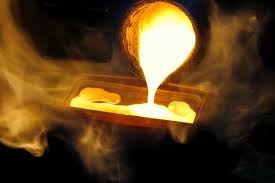
Reverting to a metaphor Jeremiah had used before in 6:27-30, the prophet takes up the picture of a refining fire. Perhaps it would succeed where all else had failed. Therefore this is what ADONAI-Tzva’ot says: See, I will refine and test them, for what else can I do because of the sin of My people (9:7)? I have no other choice, says God. I cannot leave them in their sin for they were intended to be a holy people; nor can I utterly destroy them, for they are My people. So I must refine them thru the tribulation of suffering. Their tongue is a deadly arrow; it speaks deceitfully. With their mouths they all speak cordially to their neighbors, but in their hearts they set traps for them (9:8).
Should I not punish them for this? declares YHVH. Should I not avenge Myself on such a nation as this (9:9, also see 5:9 and 5:29)? Judah had deteriorated to a pagan Gentile status. A nation that exploits such loving kindness as ADONAI had shown Y’hudah could not remain unpunished (Amos 2:9-3:2). Yet the ultimate purpose of His penalty was not the utter destruction of His people, but their purification, as silver is purified by fire. What amazing grace.





